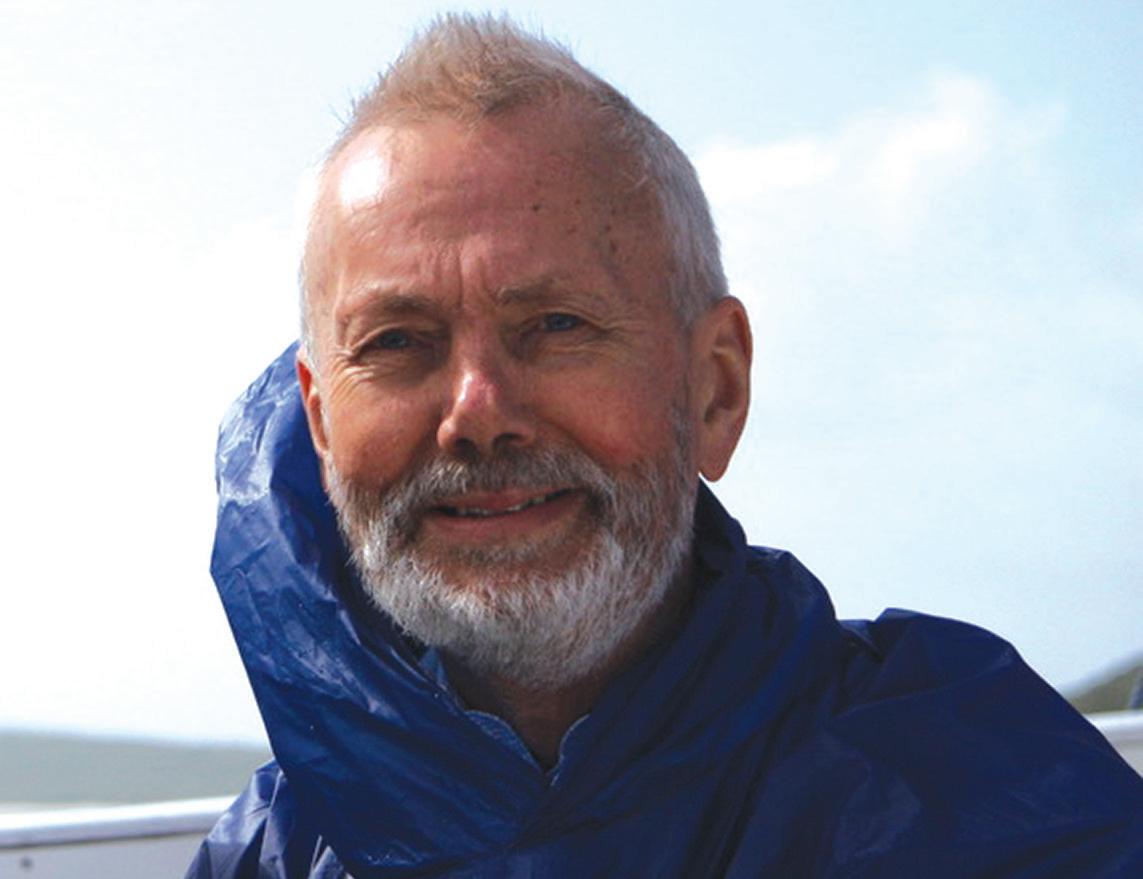
4 minute read
A non-traditional return
“A rather unusual Michaelmas term is underway,” said Vice-Chancellor Stephen Toope in a vast understatement recently. Read on to see how the Department is coping – and even thriving – in these extraordinary times.
A socially distanced induction
The traditional return of students in October was transformed by Covid-19, but the Department’s extensive preparations meant that teaching and research were able to carry on with a few key modifications.
Up close and (not) personal
All large lectures are now online, and the adjustment of both lecturers and students has been surprisingly successful. “This has been pretty straightforward, because we were already involved in a pilot to record lectures that started three years ago, so we had a good system set up and in use,” says Head of Department Dr James Keeler.
In contrast, small-group supervisions, which are considered by many to be the hallmark of a Cambridge education, can still be conducted in person using socially-distanced facilities in the library and other areas, but with the option to go online if desired.
But what about that traditional foundation of chemistry training – lab practicals?
“Thanks to the hard work of everyone involved, Part III projects are running as normal, although we’ve moved some synthetic projects to the teaching labs,” says James. “We’ve also made some small changes to the experiments and timetabling for Part II and Part IB Chemistry A & B practicals to comply with social distancing, but otherwise they are pretty much the same,” he notes proudly. “The main adverse effect is on the Part IA lab course, which for the time being is a series of exercises on experimental work involving videos of experiments, write-ups, and data analysis, which we feel are meeting the needs of the course.”
Universities were exempted from the November lockdown, but everyone is aware that the situation can change at any time during this academic year. “We are being as flexible as possible with our arrangements and reviewing them regularly,” says James. “But our aim at all times is to offer the students the best possible experience and to provide the high-quality education and experience that they rightly expect from Cambridge Chemistry.”
Research
Postgrads officially returned to the Department on the 1st of October, although many had continued their research throughout the summer, either in Cambridge or from different parts of the world. “We were quite keen to have a steady return of postgrads over the summer and early autumn, to ease the return, so even students who did not need to undertake experimental work but wanted to return to Cambridge were welcomed back,” explains James. “Our
new online registration system also made everything more streamlined. I am very proud of the graduate team, who have worked so hard with the students and colleges to ensure as much as possible a safe return.”
“Our policy remains ‘only come in if you have to,’” says James, and altogether occupancy of the Department remains low. “Working practices must be safe, and we are keeping an eye on particular issues with ‘pinch points’ in the labs, and the way in which circulation leads to people crossing one another. We’ve done things like define maximum occupancy for group offices and instituting schedules for work space in the labs, and we’re still using a one-way system with face masks required in public areas.”
The precautions mean that some areas like the synthetic labs – where working from home is not an option – have been able to continue research at close to normal levels. “Our priority is to maintain a safe environment in which experimental research can continue,” says James.
Testing, testing, testing
A key University policy has been to regularly test undergrads and postgrads in college accommodation whether or not they have symptoms. Because of the limited number of tests available, one innovation has been to pool the samples: if a pooled screening test is positive, all the students in that pool then get an individual test.
Early results identified a number of positive asymptomatic cases of Covid. “Every student we identify as infected but asymptomatic – and who is now therefore self-isolating – represents a valuable intervention to prevent further transmission of the virus,” says Vice-Chancellor Toope. “The other good news is that although the infection rate has been rising in the population as a whole, the rate in the students being tested has remained stable,” says James.
Lab coats ‘socially distancing’ for safety
The Department at time of writing has had very few positive cases. “In each case their work area was quarantined for 72 hours, followed by additional cleaning and identification of contacts with the involvement of NHS track and trace. But I’m very happy to say that it does not appear that the source of the infection was in the Department, although of course we remain vigilant and continue to be rigorous about hygiene,” says James.
“The good news is that service has resumed in the Cybercafé, which is a sign that we are back and we mean to stay!”
As VC Toope said: “I am in no doubt that the year ahead will be challenging. It will require us to be resilient, resourceful and kind to one another. I am confident that we will be.”
RSC Hardship Grants
For postgrads and postdocs who were unable to continue their research during the lockdown, the Royal Society of Chemistry has stepped in with RSC Hardship Grants, supported by the Chemists’ Community Fund. These grants provide one-off, short term support to non-RSC members to alleviate the financial impact that some students and researchers are facing as a result of Covid-19.
www.rsc.org/membership-and-community/ chemists-community-fund/hardship-grant
Stay Safe Cambridge Uni: www.cam.ac.uk/coronavirus/stay-safe-cambridge-uni
Department Covid information:
www.ch.cam.ac.uk/intranet/covid-19-information











